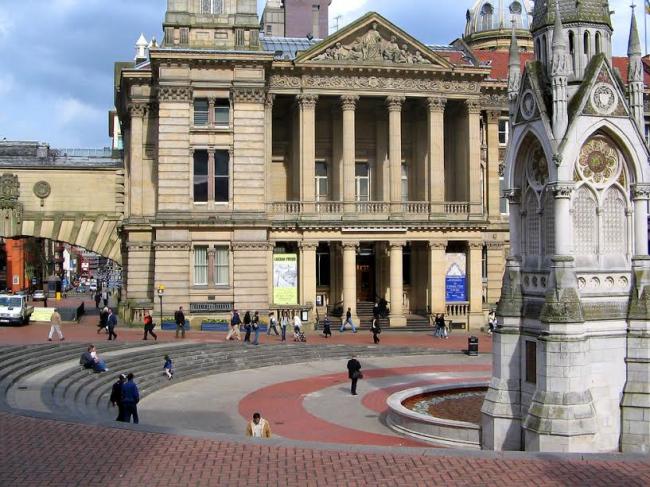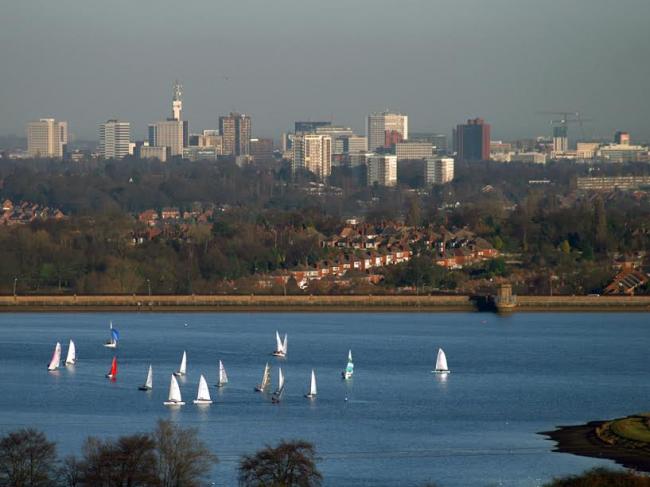
Birmingham creates city development blueprint with global dimension
And the blueprint they are working with could help city policy makers and other countries to take more effective actions to boost the quality of life for residents by providing better outcomes. Project leaders are already looking at how the work might be applied in countries like India, Brazil and South Africa.
The first part of the Urban Living Birmingham pilot project used a wide range of data and evidence used by city leaders to inform policy combined with an analysis of 248 datasets - identifying the challenges facing Birmingham.
Researchers examined datasets reflecting areas where there is a lack of communication on policy. The Urban Living pilot uses these datasets to identify the integrated nature or complexity of the challenges that face Birmingham.
Backed by the Research Councils UK/Innovate UK Urban Living Partnership, researchers have spent their first six months analysing data and evidence, discovering a unique nexus of issues that includes the following, set within the context of Birmingham’s known governance and leadership challenges.
· Birmingham performs poorly on health, with health outcomes varying in quality between different parts of the city; and, the evidence base for health policies is disconnected and fragmented;
· Getting around Birmingham is known to be difficult with some areas suffering from disproportionately high levels of traffic congestion, whilst others have poorer access to public transport; but, the needed strategic solutions are difficult to implement or missing entirely;
· Reducing carbon emissions and being environmentally friendly has fallen down the city’s list of priorities, while economic growth has risen, causing inherent tensions as the city strives to meet its sustainability obligations; and
· There are difficulties in creating an economically vibrant city with knock-on effects on attracting inward investment and new residents.
Professor John Bryson, Professor of Enterprise and Economic Geography, said: “It’s vital to develop a diagnostic approach to identifying urban challenges before creating suitable policy. Without diagnosis of the challenges facing a city like Birmingham, the impact of actions aimed at boosting citizens’ quality of life is limited.
“Our project aims to transform how urban services and governance are delivered, so that they produce better outcomes for Birmingham people. Our citizens will help to innovate and create urban services in a way of working that can be applied in cities around the world.
“As a global ‘civic’ university, we have a responsibility to enriching the life of our home city and the wider world. We believe our efforts can make a significant contribution to helping Birmingham and other world cities meet the needs of their citizens.”
 The partnership also involves academics from other universities in the West Midlands, including Aston, Birmingham City and Warwick.
The partnership also involves academics from other universities in the West Midlands, including Aston, Birmingham City and Warwick.
Urban services and systems covered by the project include areas such as education, health, welfare, cultural heritage, governance and ecosystem services. They also encompass ‘hard infrastructure’ services such as energy, water, sanitation, waste, and transport.
Researchers are particularly interested in enabling greater influence and involvement by the people, city residents, who use the services in shaping how they are delivered.
The project has two parts. The initial six-month phase has now been delivered and identified a number of major future challenges requiring further research in the second 11-month stage of the project:
Economic advantage, housing, energy and health are all inter-connected and contribute to more equitable growth across the city;
There is a distinct area around the city core where residents suffer poorer living conditions. They need better surroundings and transport links;
Physical connections between different parts of the city must improve - access to local services and non-car based networks can support community-based approaches to wellbeing;
The zone around the immediate city centre appears disconnected from central regeneration efforts and residents do not benefit from the city centre’s prosperity and profile; and
People living in some areas of the city need infrastructure and facilities that better match their needs (such as public transport that links their homes and jobs).
The next phase of the project will see researchers working with people across the city to develop an alternative understanding of Birmingham's challenges and how engaging with service users and innovation can help to address the issues.
Alongside this activity, researchers will also identify future research and innovation strategies and examine project management to identify best practice.
Support Our Journalism
We cannot do without you.. your contribution supports unbiased journalism
IBNS is not driven by any ism- not wokeism, not racism, not skewed secularism, not hyper right-wing or left liberal ideals, nor by any hardline religious beliefs or hyper nationalism. We want to serve you good old objective news, as they are. We do not judge or preach. We let people decide for themselves. We only try to present factual and well-sourced news.







